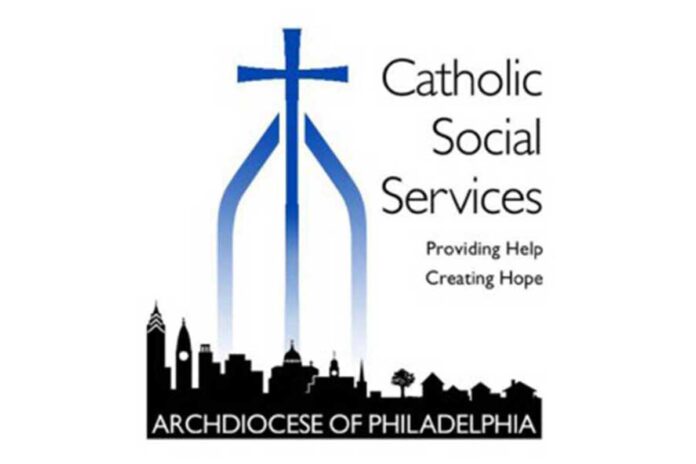The City of Philadelphia has received support from a wide swath of religious organizations regarding its upcoming Supreme Court case against Catholic Social Services (CSS). Two lower courts have already ruled in favor of the city.
At issue in the case, formally titled Fulton v. City of Philadelphia, is whether the city infringed upon the religious freedom of CSS when it pulled the agency’s contract due to its discriminatory practices. Philadelphia maintains that the actions of CSS, who does not place foster children with same sex households, violate the city’s Fair Practices Ordinance barring discrimination in public accommodations.
Some of the religious organizations and entities that have signed on to an amicus brief backing Philadelphia in the case include the United Synagogue of Conservative Judaism, Penn Central Conference of the United Church of Christ, Methodist Federation for Social Action, the Quaker organization Friends for Lesbian, Gay, Bisexual, Transgender and Queer Concerns, President Of The House Of Deputies Of The Episcopal Church, Unitarian Universalist Association, Muslims for Progressive Values, and Reconstructing Judaism.
“We as a Muslim-inspired organization have a huge problem with religion being used to justify discirmination,” said Ani Zonneveld, founder and president of Muslims for Progressive Values. “We see that in Muslim communities and in Muslim majority countries how Sharia law is being used to discriminate against individuals. For us, this really cuts close to the skin in how we’ve seen how religion is being used in human rights issues. Living in a country that’s supposed to be a separation of religion and state, we’ve seen this creep into what I would call the Christian version of Sharia law — being justified to discriminate against our fellow citizens.”
Part of the arguments presented in this particular brief explain that many religious institutions have embraced LGBTQ+ rights and traditions throughout the years, such as the United Church of Christ’s 35-year-old membership policy that prohibits discrimination based on sexual orientation, the 45th General Assembly for the Union of Reform Judaism’s 31-year-old resolution to strongly encourage its member congregations to accept gay and lesbian Jews regardless of marital or couple status, and the Evangelical Lutheran Church’s statement asking its congregations to “welcome and support” same-sex partners and families.
“What [CSS is] doing is saying LGBTQ+ people do not deserve to be treated equally as everyone else,” said Bridget Cabrera, executive director of the national office of Methodist Federation for Social Action. “Not only is that cruel and hurtful but it is not what our Christian faith calls us to. Using one’s faith to do harm to a group of people for who they are is wrong. Additionally, this type of discrimination has no place for an organization that is contracted by the state and receives taxpayer dollars. Religious belief should never be a reason to discriminate and do harm towards others.”
Stasa Morgan-Appel, who serves as clerk for the Friend of the Court Brief committee of the Quaker faith group Friends for Lesbian, Gay, Bisexual, Transgender and Queer Concerns, discussed the damage done to the foster children that CSS claim to serve.
“Part of the argument is that kids don’t get to pick which system they go into foster care through,” Morgan-Appel said. “It’s very well documented that queer people of any variety…are good parents. The research is abundant on that, at this point. First off, it is harming kids not to have access to sufficient foster parents and adoptive parents.”
Morgan-Appel also emphasized the extra support that children who identify as part of the LGBTQ+ community stand to receive by being fostered or adopted by parents who are in turn part of that community.
“We know that there are much higher rates of bullying and violence against these kids,” they said. “We also know that there are much higher rates of suicidality and completed suicide in this community. Having access to supportive adults means the world. It can be the difference between life and death. It’s not to say that straight parents can’t raise queer kids, because they do. I think it’s pretty clear that having access to foster and adoptive families who are not just accepting but who can embrace them fully for who they are, is something that’s vitally important.”
Not only do the religious entities that signed the brief condemn the use of religious tenets to justify discrimination, they condemn the stereotype that religion and religious organizations do not welcome members of the LGBTQ community.
“We reject the notion that ‘religion’ or ‘people of faith’ by definition oppose LGBTQ equality,” Rabbi Micah Weiss said in an email. Weiss serves as associate director of thriving communities/tikkun olam specialist for the organization Reconstructing Judaism. “To the contrary, the Reconstructionist movement welcomes and celebrates LGBTQ individuals and families, valuing them as unique embodiments of the divine image that unites us all, and worthy of dignity and support.”
Zonneveld had similar sentiments. “Theologically-based hate is unacceptable,” she said. “If we claim that Islam is a religion with love and mercy and compassion, then show me the money, as we would say.”
The diversity of religious entities that signed the brief proves significant, Morgan-Appel said.
“Having a pretty widely interfaith group of co-signatories saying together that the religious right does not speak for religious groups, I think that is really important, particularly given the current political climate. I think it’s very important for religious people and organizations to say, ‘we actually have a place in the political dialogue and in the fight for fundamental human rights.’”

